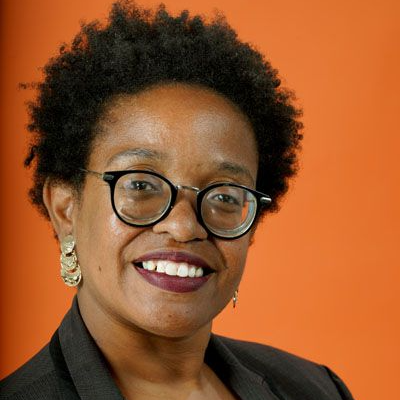Spontaneity is hard as a single mother who doesn’t like to move her car on weekends lest she lose her parking space. But last year, a dear friend asked me if I could fill in as the special guest for Baltimore Improv Group’s “BIG Time Improv Comedy Show” that very evening. And invite people. And be interesting and hopefully funny in a spontaneous manner in front of people.
I was terrified. I was covetous of my parking space. But I said yes. And it was glorious.
There is a well-known game in improv called “Yes, And” that requires participants to fill in quick responses to someone else’s prompt and hope it comes out coherent and perhaps funny, even if coherently so. As a 50-something with a necessarily scheduled life, there’s a breathtakingly vital element to trying something new, to walking out on the edge and not worrying if you’re perfect. The worth is found in the discovery, no matter how old you are.
“It’s about being present and staying in the moment and not about thinking of a funny line. Listening is huge,” said Brian Shea, a co-founder of Highwire Improv, which has a show this Saturday at its new Highlandtown theater.
Awakening those skills as an adult is not only scarily fun, but scientific. In a 2024 “Psychology Today’ column titled ”Doing Something New Is Good For You," therapist Karyn Hall writes that “flexible thinking is a part of psychological health.” The very cornerstone of improvisational or improv comedy is the spontaneous ability to joyfully go with the flow, to connect the dots by the seat of your pants and hope it’s funny.
Highwire Improv was born during the pandemic lockdown, a period, you might remember, when spontaneity was all but impossible. Routine was legally and medically defined. The ability to do anything new, from making sourdough to yoga, was necessary.
Read More
“It was an interesting time for sure. It was an opportunity to employ the improv mindset and use the situation we were given to do great things,” said co-founder Barry Wright, who started the theater five years ago this week online, with participants logging in from around the world.
Literally, that’s what improv is, using random stories, prompts and suggestions to come up with creative situations. Now, Highwire does performances and classes every week at its newly opened Highlandtown location on South Conkling Street, which for 94 years housed Hoehn’s Bakery, which closed in 2021. Highwire Improv installed a pretty stained-glass window resembling the bakery’s as an homage.
The troupe’s name comes from the satisfyingly terrifying nature of improv itself, requiring actors to come up with a hilarious, coherent act based on unpredictable audience ideas and guest stories. For a grownup, unpredictable situations are frightening, because we’ve carved out a routine that works. Artforms like improv challenge that routine.
“When you’re doing improv, you have no script. You’re walking out without a net, and that’s part of the excitement,” Wright explained. “The audience knows you didn’t plan it — you know you didn’t plan it. The tension and excitement adds to what you see onstage.”
The thrill is in knowing that at any time, it could go very, very wrong. And that’s the gamble you have to take. “You really have to give up a lot of yourself,” said Shea, whom I first met 25 years ago when we both worked at the York Dispatch in York, Pennsylvania. The company does free improv workshops all over the area, and recently the theme of one he participated in was the airport.

“In my mind, I was carrying a Cinnabon, my coffee, a water bottle and dragging my suitcase. My scene partner says ‘I love your cat!’ And now I had to be the weird guy trying to carry 11 cats onto the plane,” he said.
Now that’s funny! Shea did five years of community theater but got immediately hooked on improv after taking a class, and “I was like ‘This is what I do now.’ It scratches an itch.” And it was farewell to scripted parts after that. “I was like ‘I did those lines yesterday,’” he said. “’I don’t want to do them tomorrow.’”
He told me about a recent class in which a family of novices came in, including the Indian-born mother for whom English, and the known cultural cues that work so well in improv, were a mystery. “She wanted to try something new,” he said, and she worked through the scary.
Both he and Wright have day jobs, Shea as a communications associate at the Johns Hopkins University Bloomsberg School of Public Health. Wright is a technical product manager for a telehealth company. “My degree is in math. My whole world is technology, correct answers. Improv is a great juxtaposition for that.”
New stuff is a juxtaposition for our everyday lives, even if we consider ourselves artists. This weekend’s show is “ImprovScape,” which might sound a lot like Baltimore’s longtime festival Artscape, and that’s on purpose, Wright said.
Like that festival, which brings different genres of art for audiences, “we are using improv as a tool to bring different artistic communities together. We both visit artist galleries and do so on their turf, and sometimes we bring them into the theater.”
Which brings us back to “Yes, And,” that spooky prospect of going against our grown-up instinct towards safety and the routine. In the improv world, and outside of it, fighting against that instinct, even one sketch at a time, can be enlightening if we trust the process and each other.
“All it means,” Wright added, “is that we are going to agree to play in the same sandbox together, and we are going to build the castle together.”
Sometimes, that castle might have 11 unexpected cats in it.




Comments
Welcome to The Banner's subscriber-only commenting community. Please review our community guidelines.